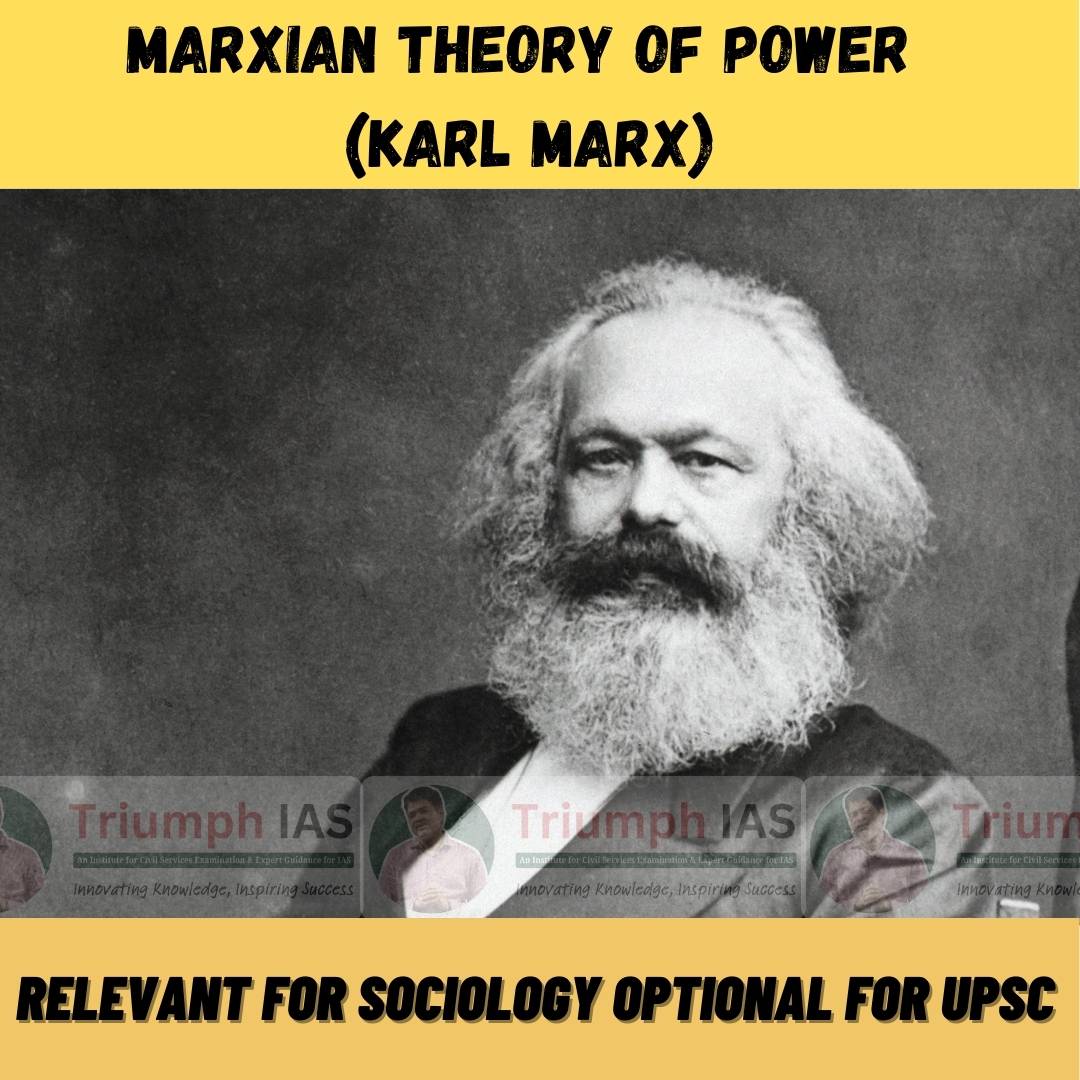- Marx does not give a clear definition of power, for him, power means coercion. Marx views power to be held by a particular group in society at the expense of the rest of the society. According to him the source of power in society lies in economic infrastructure and those who own the modes of production i.e. the dominant group uses power to further its own interest and there by exploiting those who subject to power.
- Marx argues that although from time to time dominant classes do have to resort to naked force to maintain their power and supremacy, the absence of such obvious coercion should not be taken to signify an absence of exploitation, lack of naked oppression does not indicate lack of oppression and the lack of any need to force. Lack of naked oppression does not mean that domination is not taking place. It is only that the dominated are unaware of their condition, because of the effectiveness of the ideologies into which they have been socialized.
- How do such dominant idea, which hails the dominating power of the dominant class and the exploitation of the subordinate class, gain such general acceptance? Marxists argue that particular ideas come to prevail through various key agencies of socialisation. FOR EXAMPLE, institution like the family, education system and the mass media play a crucial role in the promoting generally held beliefs and values. For Marxists through these institutions of socialization the real character of class society is justified and thus it ensures social inequality and domination and thereby the acceptance of the power structure in the society. This is the key element in Marxist approach to the superstructure, a society’s non-economic institutions and the ideas and beliefs they promote. The assumption is that they exist to prop up a class-based mode of production. Thus are power inequality in the economic infrastructure is reflected in the superstructure.
- Marxist theorist argue that institutions like education, state and mass media justify the stereotypical images of superiority and inferiority coinciding with class position. Thus in terms of Marxian theory “the relationship of dominance and subordination in the infrastructure is justified and legalized by the super structure”. For example, in capitalist society and the unequal relationship between employees and employers will be reflected and legitimated in the legal system. A range of legal status protect the rights of property owners and in particular their right to a disproportionate share of the wealth produced by their employees. Marxists argue that such an analysis of the relationship between the infrastructure and super structure tells in great deal about power in a class society. That means, for example, in capitalist society the infrastructure produce particular kind of state, education system, family structure etc. All institutions of super structure that reflect the domination of class structure reinforce the power and privilege of the ruling class in the society.
- Marx views power as to be held by a particular group (dominant class) in society at the expense of the rest of the society (subordinate class). This is a constant sum concept of power since a net gain in the power of the dominant group represents a net loss in the power of the next in society. The dominant group uses power to further its own interests and these interests are a direct conflict with the interests of their subject to its power.
- Thus for Marx the source of power in society lies in the economic infrastructure. The basis of dominance or power is the ownership of forces of production. The ruling class, those who own the forces of production uses power to exploit and oppress the subject class in all societies. The case of power to exploit others is defined by Marx as coercion. It is seen as an illegitimate use of power since it forces the subject class to submit to a situation which is against its interests.
- The only way to return power to the people is communal ownership of the forces of production. Since everyone will now share the same relationship to the forces of production, power will be shared by all members of society. Here Marx’s concepts of false consciousness and class-consciousness are of importance. When the exploited class realizes their exploited status and start recognizing themselves to belonging to the same class, there originates class consciousness among them. In their subjective views of themselves and their condition comes to match its objective reality.
- It is the emergence of a true class consciousness by a subordinate class that is the key which unlocks the revolution which over throws the existing power structure of the society to replace it with one which suits to the new economic arrangements.
|



For ten marks note